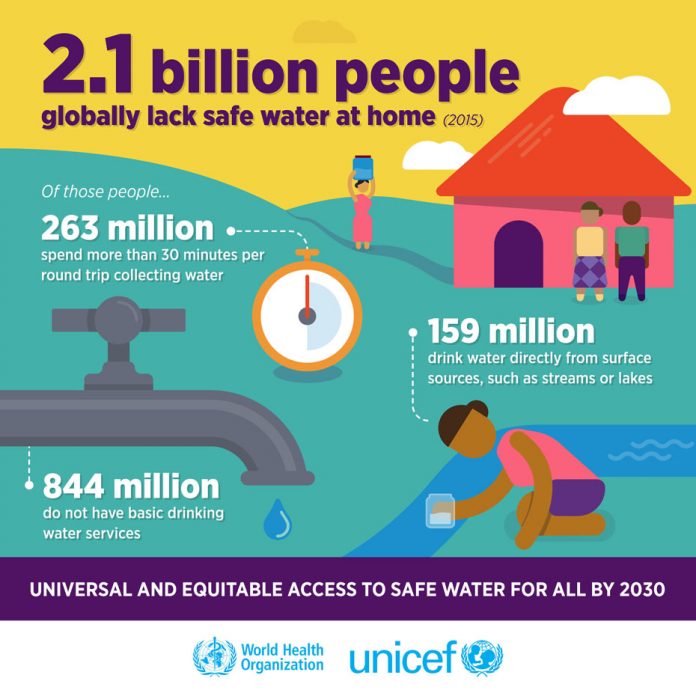Some 3 in 10 people worldwide, or 2.1 billion, lack access to safe, readily available water at home, and 6 in 10, or 4.5 billion, lack safely managed sanitation, according to a new report by WHO and UNICEF.
The Joint Monitoring Programme (JMP) report, Progress on drinking water, presents the first global assessment of safely managed drinking water and sanitation services. The overriding conclusion of the report is that too many people still lack access, particularly in rural areas.
“Safe water, sanitation and hygiene at home should not be a privilege of only those who are rich or live in urban centres,” said Dr Tedros Adhanom Ghebreyesus, appointed in May as the new Director-General of WHO. “These are some of the most basic requirements for human health, and all countries have a responsibility to ensure that everyone can access them.”
Other key findings from the report include:
- Many countries lack data on the quality of water and sanitation services. The report includes estimates for 96 countries on safely managed drinking water and 84 countries on safely managed sanitation.
- In countries experiencing conflict or unrest, children are four times less likely to use basic water services, and twice as less likely to use basic sanitation services than children in other countries.
- There are big gaps in service between urban and rural areas. Two out of three people with safely managed drinking water and three out of five people with safely managed sanitation services live in urban areas. Of the 161 million people using untreated surface water (from lakes, rivers or irrigation channels), 150 million live in rural areas.
- According to WHO, billions of people have gained access to basic drinking water and sanitation services since 2000, but these services do not necessarily provide safe water and sanitation. Many homes, healthcare facilities and schools also still lack soap and water for handwashing, putting people at risk for diseases, such as diarrhea.
- “Safe water, effective sanitation and hygiene are critical to the health of every child and every community–and thus are essential to building stronger, healthier, and more equitable societies,” said Anthony Lake, Executive Director, UNICEF. “As we improve these services in the most disadvantaged communities and for the most disadvantaged children today, we give them a fairer chance at a better tomorrow.”








